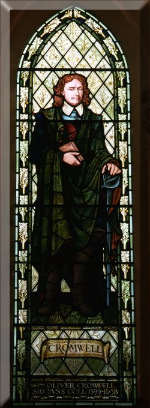
Cromwell’s life and actions had a radical edge springing from his strong religious faith. A conversion experience some time before the civil war, strengthened by his belief that during the war he and his troops had been chosen by God to perform His will, gave a religious tinge to many of his political policies as Lord Protector in the 1650s. Cromwell sought ‘Godly reformation’, a broad programme involving reform of the most inhumane elements of the legal, judicial and social systems and clamped down on drunkenness, immorality and other sinful activities. He also believed passionately in what he called ‘liberty of conscience’, that is freedom for a range of Protestant groups and faiths to practise their beliefs undisturbed and without disturbing others. Several times he referred to this religious liberty as the principal achievement of the wars, to be strengthened and cherished now that peace had returned. Others, however, viewed these religious policies as futile, unnecessarily divisive or a breeding ground for heresy.
